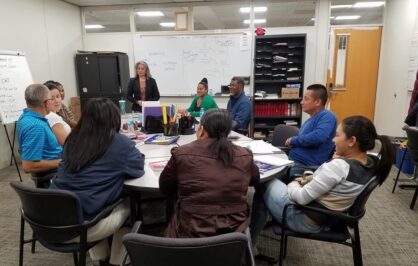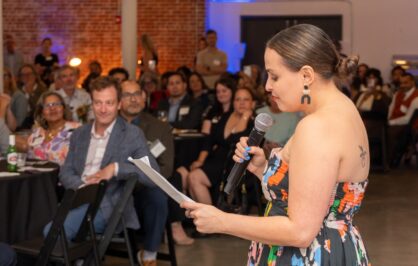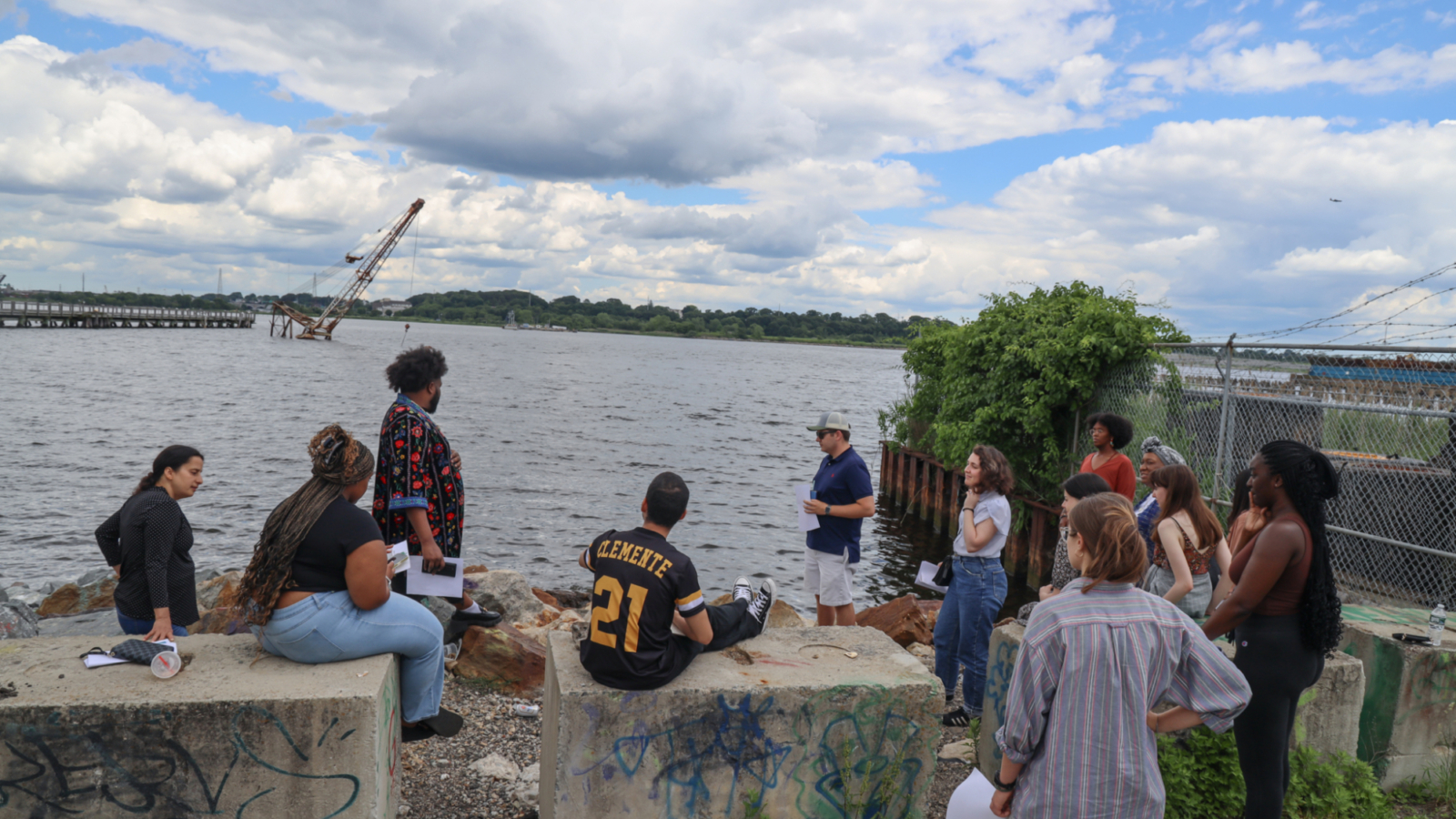
Grants & Scholarships
Cultivating a world where everyone lives well
In less than a decade and with a small team, the Racial and Environmental Justice Committee (REJC) has become a leading advocacy organization in New England.
In less than a decade and with a small team, the Racial and Environmental Justice Committee (REJC) has become a leading advocacy organization in New England. Through its mission of “transforming the collective priorities of BIPOC, low wealth, and frontline communities in Providence and throughout Rhode Island into policy solutions,” REJC seeks Buen Vivir which means “to cultivate a world where everyone lives well without living better at the expense of others.”
REJC has expanded so much that it has now gained the attention of national and local leaders to assist the organization in moving the needle. U.S. Congressman Gabe Amo, recently tapped REJC’s organizational steward, April H. Brown, for his new District Climate Policy Advisory Committee.
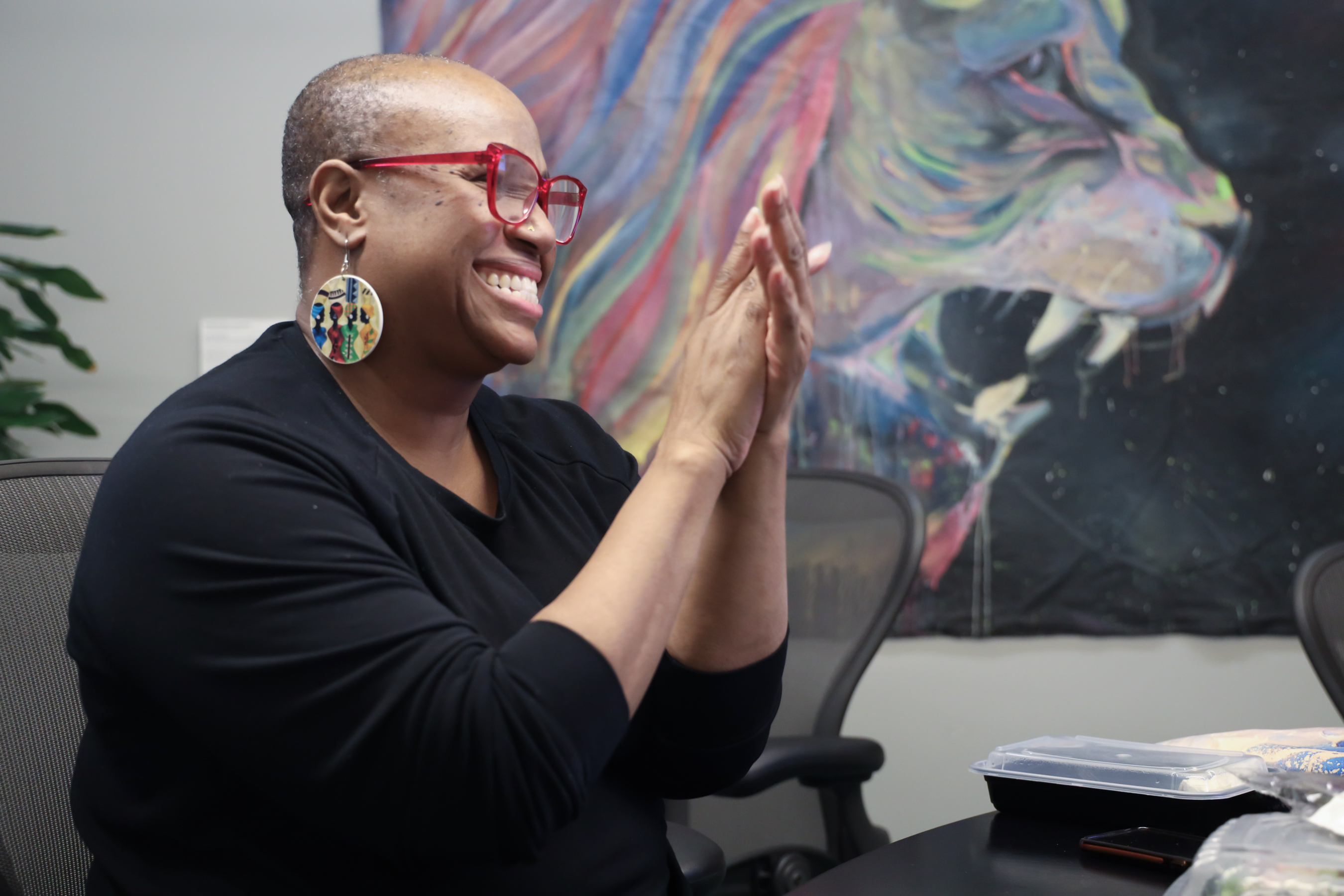
"This diverse group of local environmental leaders will help guide our efforts to protect Rhode Island's natural beauty and tackle the challenges of climate change,” said Amo. “Our committee will be instrumental in advising on federal funding priorities and ensuring we're on the right track when it comes to passing legislation that benefits our state."
An arm of the federal Environmental Protection Agency has also recently designated REJC as “the anchor organization” to represent Rhode Island in determining the critical steps that the country must take to combat environmental injustice, systemically occurring in low-income communities and communities of color.
To accomplish this and adhere to its mission, REJC has abandoned colonizing behaviors and structures that are deeply rooted in many business and governmental sectors throughout America. Its staff are called stewards and hold equal weight in its “ways of being.” Community members are true partners at the table. Their voices are respected, and decision-making is shared to “foster democratic participation and equity through community-driven decision-making” and “bridge the divide between community and governance.”
“In dismantling white supremacy and dominant power structures, we recognize that the system in place was not created in a single effort. Therefore, our work won’t be completed with a quick and simple solution. We instead recognize that to achieve equity, we must struggle together over the long term.”
“There is no quick fix,” says Brown. “In dismantling white supremacy and dominant power structures, we recognize that the system in place was not created in a single effort. Therefore, our work won’t be completed with a quick and simple solution. We instead recognize that to achieve equity, we must struggle together over the long term.”
The Rhode Island Foundation has supported REJC nearly from the start. The Foundation’s awarded its first $50,000 grant in 2016 to help the nonprofit build power within Providence’s frontline communities of color and be a part of the development and decision making around Providence’s Sustainability Plan. Since then, the organization has received an additional $311,500 in funding from the Foundation, with their most recent grant award given in support of REJC’s Green Justice Zones work.
Inspired by work in Minneapolis, REJC defines Green Justice Zones as areas that have experienced historic disinvestment and neglect – where residents have been organizing for decades to reduce industrial pollution and implement solutions that address the unhealthy and often discriminatory land use patterns that have shaped how our communities look today.
A community-led vision for a Green Justice Zone in the Port of Providence was a primary goal identified in the Climate Justice Plan, published by REJC and the city of Providence in 2017. Olneyville and the Port of Providence were chosen as the two city neighborhoods to define as Green Justice Zones based on substantial data showing cumulative pollution in these areas.
“They [those who may not understand that this work is necessary] ] have had the privilege of not needing to think about these things that are impacting people, primarily people of color, and if we don’t take the time to focus on these issues, we will continue to go down a path that isn’t working” said Program Steward Jesus Holguin, 31, who has been doing this work since he was a teenager. Holguin has been with Brown and REJC since its inception and is a leader in Green Justice work. “This is why we need to change the approach of how we are addressing these injustices; our ways of being is a different option from the traditional [approach] that we know doesn’t work and leaves people out.”
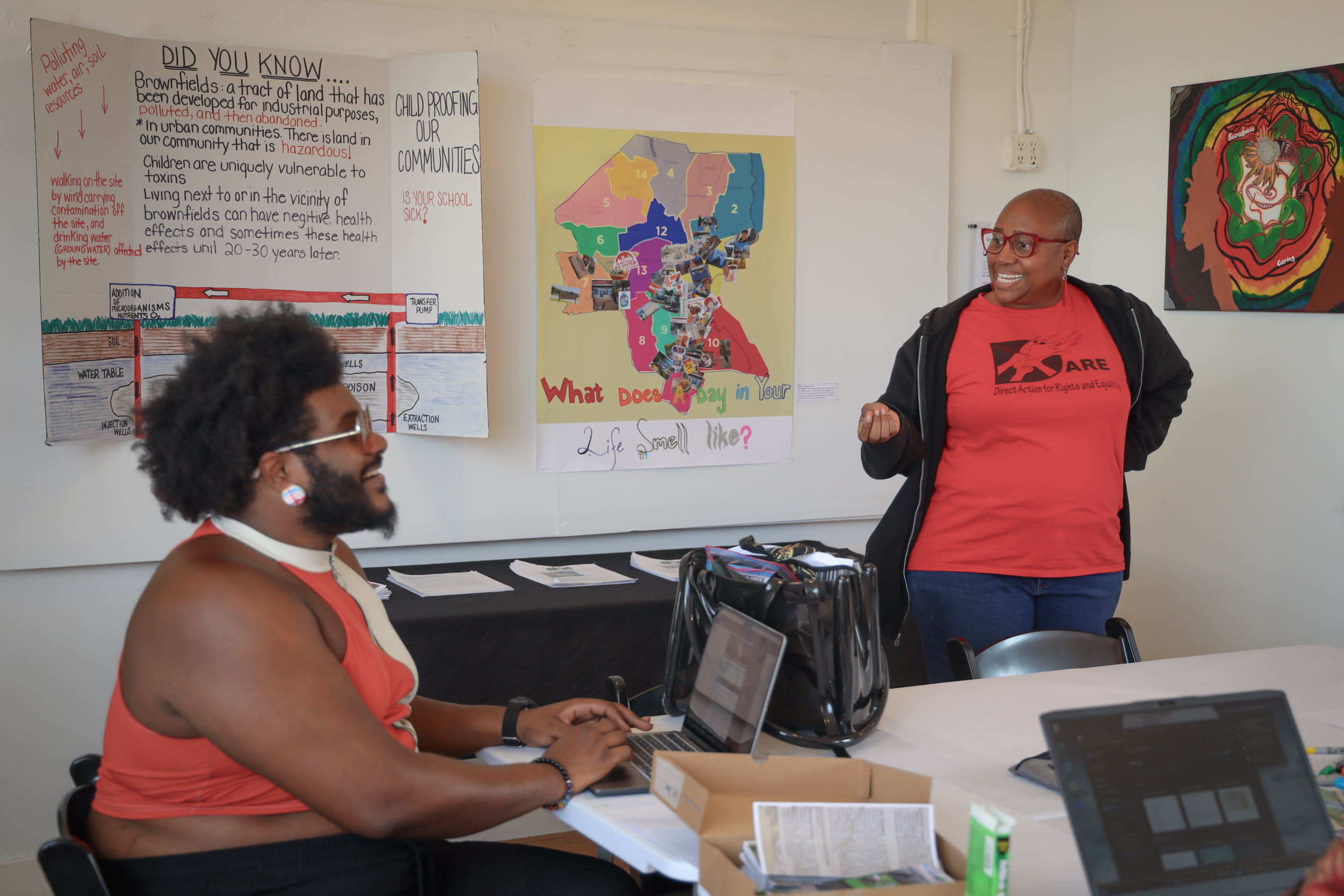
Next for REJC is work with state officials to pass a Green Justice Zone Act. It has also drafted a curriculum to do its work collaboratively, with one voice. In addition, Holguin and a member of a partnering nonprofit conduct ‘Toxic Tours’ of some of the state’s urban areas where poor planning has led to negative health and welfare impacts on the residents of frontline communities.
Support for REJC’s mission and advocacy is one of the many ways the Rhode Island Foundation is working toward mitigating the impacts of climate change, especially within communities deeply and disproportionately affected by environmental pollution. Through these vital partnerships, we can drive positive change to protect the people and places we call home.


